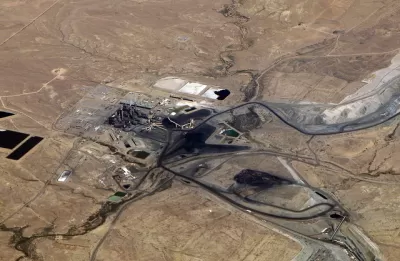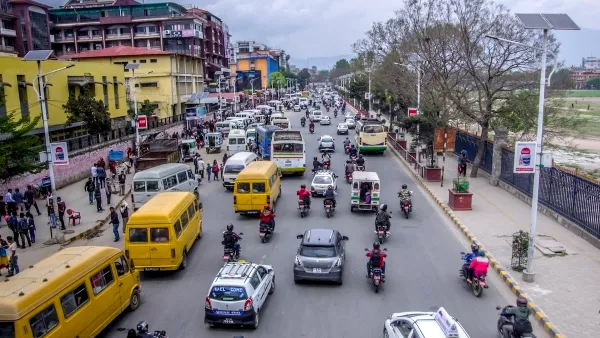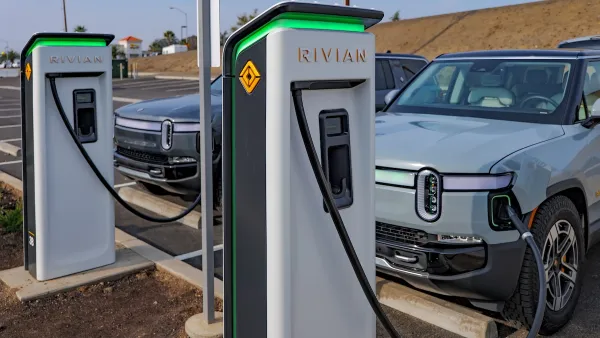The energy sector produced ten percent less carbon emissions in 2019 than the previous year—the largest drop in decades. Still, the decline of the coal industry is not enough to meet the goals of the Paris Climate Accord.

"Greenhouse gas emissions in the United States dropped last year after a sharp increase in 2018," reports Nicholas Kusnetz. The news arrives via data released by Rhodium Group. After an increase in emissions in 2018, 2019's emissions reductions resume a "long-term downward trend driven chiefly by a shift away from coal power generation," according to Kusnetz.
"The story of the emissions decline has largely been one of market forces—rather than policies—that have made utilities close coal plants in favor of cheaper natural gas and renewable energy," adds Kusnetz. The story is all about coal, according to the article.
A key caveat included in the article is that the 2 percent reduction is not enough to meet the targets of the Paris Climate Accord.
FULL STORY: U.S. Emissions Dropped in 2019: Here's Why in 6 Charts

Planetizen Federal Action Tracker
A weekly monitor of how Trump’s orders and actions are impacting planners and planning in America.

Map: Where Senate Republicans Want to Sell Your Public Lands
For public land advocates, the Senate Republicans’ proposal to sell millions of acres of public land in the West is “the biggest fight of their careers.”

Restaurant Patios Were a Pandemic Win — Why Were They so Hard to Keep?
Social distancing requirements and changes in travel patterns prompted cities to pilot new uses for street and sidewalk space. Then it got complicated.

Platform Pilsner: Vancouver Transit Agency Releases... a Beer?
TransLink will receive a portion of every sale of the four-pack.

Toronto Weighs Cheaper Transit, Parking Hikes for Major Events
Special event rates would take effect during large festivals, sports games and concerts to ‘discourage driving, manage congestion and free up space for transit.”

Berlin to Consider Car-Free Zone Larger Than Manhattan
The area bound by the 22-mile Ringbahn would still allow 12 uses of a private automobile per year per person, and several other exemptions.
Urban Design for Planners 1: Software Tools
This six-course series explores essential urban design concepts using open source software and equips planners with the tools they need to participate fully in the urban design process.
Planning for Universal Design
Learn the tools for implementing Universal Design in planning regulations.
Heyer Gruel & Associates PA
JM Goldson LLC
Custer County Colorado
City of Camden Redevelopment Agency
City of Astoria
Transportation Research & Education Center (TREC) at Portland State University
Camden Redevelopment Agency
City of Claremont
Municipality of Princeton (NJ)




























